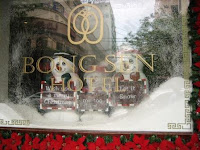One recent editorial line struck my eye a while ago, but I didn’t really go into it in much depth then. It showed the blue colours of the paper extend beyond the style sheet to the mind of the editor as well.
Now, an editorial is allowed to be opinionated – it’s the whole point I suppose. I was interested in the conclusion though: Key presents powerful case for asset sales, a case that the editor sees as courageous and well directed at “sacred cows”.

Considering asset sales has been the clarion cry of Act and the Business Round table for… well, years, if not ever, I don’t really see it as a lone, rebellious voice in the wilderness this back patting seems to be. And the “powerful” case itself mainly stacks up to New Zealand’s economy floundering like so many others around the world and new schools, highways, hospitals and broadband need to be built – all very tangible and “worthy”, to be sure. The editorial does not comment about the extra cost associated with new operating theatres and more classrooms (not that I disagree with the idea of course; just pointing this out) nor that one of those other floundering economies, Ireland, was the Right’s pin-up poster boy a few years ago for what nations New Zealand’s size could and should be doing.
That is not to say this is not be a “bold and sensible” course, as the editorial concludes. However much I personally may disagree with the idea, I do not have a background in economics and have a fairly low opinion of the morality of the market so I tend to approach the topic with a big sense of scepticism.
But I would think that a “powerful case” would actually provide some kind of evidence for the conclusion reached, and would cover some of the more glaring issues that arise. “A case” can be completely powerful if you happen to agree with it: some religious Christians see the Bible as completely true and that it should be interpreted literally because the Bible says so. Again, that is not to say that the conclusion is wrong, just that it is not actual “proof”, nor that the argument is powerful to anyone other than believers.
There were quite a few comments on this editorial, unsurprisingly, and the majority of the ones I saw did not share the editor’s opinion. I suppose it is a good editorial in that it does get people thinking about what is important to them and the merits of various proposals. It is just a shame the paper did not choose to do its own analysis and present all sides of the argument itself, as surely any good journalistic medium should do.
Thank heaven I get Stratos in a few months’ time…
Verdict: Newspapers in NZ continue to underwhelm with their superficial approach. New Zealand may be a country where only the Rugby (and, in particular, the exploits of SBW) gets discussed in any length length whatsoever, but it would be nice to know there was a bit of depth somewhere out there too. 2 Pulitzer prizes out of 10.

















